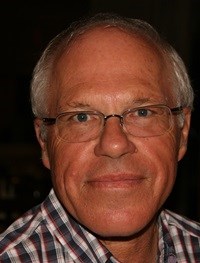
Top stories



HR & ManagementNational minimum wage 2026: What workers (and employers) need to know
Danelle Plaatjies and Ludwig Frahm-Arp 10 hours



More news




















Research. It's something usually seen by the vibrant faces of agencies as something boring, time-consuming and numbers-focused. Higgs says this couldn't be further from the truth. How else would we get hold of market-critical insights such as Zuma's declining popularity in metro areas and the true value of social media insights?
There's no denying that a research house is multi-faceted, often compete with a broad range of service offerings - particularly where there is a dedicated innovation department, as at TNS.
Higgs tells us more about TNS' history, his WorldView research, and what we can expect in future...
 1. Firstly, give our readers a bit on TNS' history and highlights over the years...
1. Firstly, give our readers a bit on TNS' history and highlights over the years...
Higgs: Let's start with the official version: The TNS Group dates back to the 1940s, with the formation of NFO (USA). In October 2008, TNS became part of The Kantar Group, a division of WPP, one of the world's largest communications' services groups. In 2011, TNS merged with Research International. In South Africa, TNS has a history of well over 30 years. Here, TNS acquired Research Surveys, which then merged with Research International to form TNS Research Surveys, one of the largest full-service research houses in the country. TNS Research Surveys is therefore part of the Kantar Group, a division of WPP, which also includes Kantar Media, a specialist media research group. TNS in South Africa has a close working relationship with Kantar Media and works jointly on a variety of programmes.
As a full-service research house with a comprehensive set of research competencies, TNS offers customer experience, brand, innovation and product development, retail, media and political and social research focus, specialising in large-scale programmes conducted on a national basis - either tracking or ad hoc. We have substantial expertise in all research approaches and across virtually all sectors, including media, consumer goods, telecommunications, retail, financial services and manufacturing. Our national footprint and scale implies that we are ideally positioned to conduct nationally representative projects and to manage large-scale programmes from end-to-end with large, dedicated and expert teams managing each part of the research process. We also have the capability to collect data using any method online, mobile, telephonic, in addition to our traditional capacity for face to face interviewing using online (CAWI) and offline (CAPI) technology.
I started at the-then Research Surveys in Durban in July 1985. The company had a reputation for being very different in that it went well beyond a simple reciting of results to giving insights into what the results meant - almost scandalous at the time in the eyes of some! We have never lost our focus on innovation and research-into-research as our many papers at the annual SAMRA Conference have demonstrated. We have also always had a commitment to making our models and innovations as transparent as possible; hence, our many prizes at the SAMRA Conference as well as at other forums around the world. A key highlight was the development of the Conversion Model in the late 80s - a model now in its fourth iteration and acclaimed worldwide, and in the public domain. Over the years, we have also developed a quality-of-life suite of measures, this leading directly to our latest WorldView model, Prism. We have also been instrumental in developing a pan-African measure of socio-economic status (PA-SES) that has been eagerly received by many clients in the region. It is shortly to be adopted in a specialised form by PAMRO.
But, at a more personal level, there are three things that make TNS special. First, and this is no cliché, the people are amazing. I have never known such a sense of family and of support for each other than at TNS. The values of the company are lived daily and are exemplified by the company's support of NPO Africa Food for Thought (AFFT) that feeds 14,000 children daily and 140 families every month. TNS was the start-up donor of this charity and has supported it since 2003.
Secondly, looking back, I am amazed at how the competencies of the company have moved from technical expertise to real client partnership and have grown quite remarkably. Having access to the worldwide TNS network is also incredible. The expertise at our disposal is truly impressive.
Finally, TNS has always had an innovation focus but this has been massively enhanced since Jan 2014 with a dedicated Innovation Department - almost unique in TNS worldwide. This department is greatly influencing innovation throughout TNS globally (our boss has just been made a Global Director of Technology Enhanced Research), not just in SA. Our incoming new boss has just won an Atticus award - a global award from Kantar for innovation is assessing advertising. It is the most exciting place to be right now!
 2. Certainly seems that way! Why is it so crucial for marketers to understand consumers' beliefs and experiences with your brand?
2. Certainly seems that way! Why is it so crucial for marketers to understand consumers' beliefs and experiences with your brand? Higgs: Marketers are adept at understanding their particular category. They usually have a fair understanding (albeit sometimes quite spotty) of how their customers live and they understand that brands carry non-category emotional benefits such as aspiration (think any brand where badging is important) and pride (say, producing a home-baked item). But there is something missing.
Eminent marketer Seth Godin notes that understanding a person's deepest beliefs - their worldview - is critical in crafting marketing and policy messages that truly resonate with them:
"Tell me what your ideal customer believes, at the most emotional and primordial level, and then you can tell me the story you'll craft that truly engages with that belief."
Senior people at Unilever in London talk about understanding the whole person in order to understand how brands can make differences in people's lives and not just in the category.

Higgs: Hence Prism - measuring people's worldview.
It is the lens through which we view and interact with others, the world, nature and our conception of the universe. We all have different worldviews depending on our genes, to whom and where we were born, the choices we made or were made for us and our assessment of the resultant outcomes. Our individual worldviews are undergoing continuous modification.
TNS has developed a worldview measurement system that gives an understanding of the belief systems that underlie all decision-making. It consists of three spectra: attitudes to humanity (respect others or not), locus of control (I am in control of my life vs fate/Supreme Being is in control) and a long- vs-short-term planning focus. We show that brands have different profiles in terms of the WorldView measures and that different worldviews view advertising messages differently. Understanding this enables markets and policy-makers to devise communications that will work way better.
The key thing is that most decision-making happens very fast at an almost sub-conscious (sometimes called pre-conscious) level and is often very habitual - and this uses our worldview without us even realising it to help make these decisions. But also, if an advertising message, or even a message such as those in the Drive Alive or SARS campaigns, goes against a person's deepest beliefs, it simply gets ignored - it is not even seen by the lenses though which we view the world, or if it is, it is immediately discarded.
 5. Makes sense. Lastly, tell us about the implications of TNS and Kantar Media announcing a strategic mobile research partnership with GeoPoll.
5. Makes sense. Lastly, tell us about the implications of TNS and Kantar Media announcing a strategic mobile research partnership with GeoPoll. Higgs: Research is undergoing a disruptive phase right now. There are new streams of data (think Big Data and the ability to trawl through social media, location-based marketing and GIS) that need to be integrated with more traditional research approaches. But there is more. Our knowledge of how memory works and how we recall our own behaviours has changed a lot in recent years. In order to get to those decisions I refer to above, we need to ask questions that tap into that immediacy. This means that there is a new focus on very short questionnaires (think seven minutes) that do not need people to tap into the more cognitive part of our decision-making processes - which are rarely employed, anyway. This cognitive part of us is what traditional research taps into and is only good to understand habitual behaviour - not what we just actually did and why.
This is where in-the-moment studies are growing - and they need mobile to do effectively. So we can ask people what they did in the last hour - what they ate, bought, did. Where they were, what they felt about it. We know that brand equity also varies by occasion - situational equity it is called. So, how I feel about a beer might depend on what I am doing, who I am with, what I am looking for in that moment. Mobile can tap into that. Mobile also can give us quick reads in to key events such as the launch of a new ad or product, or get reaction fast to some event such as the State of the Nation speech (which we studied via mobile, regular survey, social media and a web-based survey - great case study). Some say that mobile is the future of research as people carry their mobiles with them all the time and they are always on. Hence, the link with GeoPoll is crucial to enable us to do this with good samples, big samples and fast. Also, research in Africa is vastly enhanced by mobile approaches - one can get to areas too expensive for face-to-face research, where there are security or disease issues or where niche markets are involved. Africans have bypassed the desktop/laptop phase and have transitioned straight to mobile. TNS is at the forefront of developing mobile studies that works on all types of phone - not just smartphones. These are termed device-agnostic approaches and TNS South Africa is a leader in these. One of my colleagues presented a paper at the recent SAMRA Conference on understanding who does and who does not answer mobile surveys - critical to producing data that clients can trust. GeoPoll is a key partner in all of this. We have done studies across Africa in less than a week from conception to results with big samples.
As if that's not enough, Higgs also writes for and edits the SA Marketing Magazine. He adds that there are some coming changes, currently under discussion - expect a lot of new material in the near future.
For more on TNS, visit their press office or follow them on Twitter.
You can download Higgs' WorldView Prism overview by clicking here.
